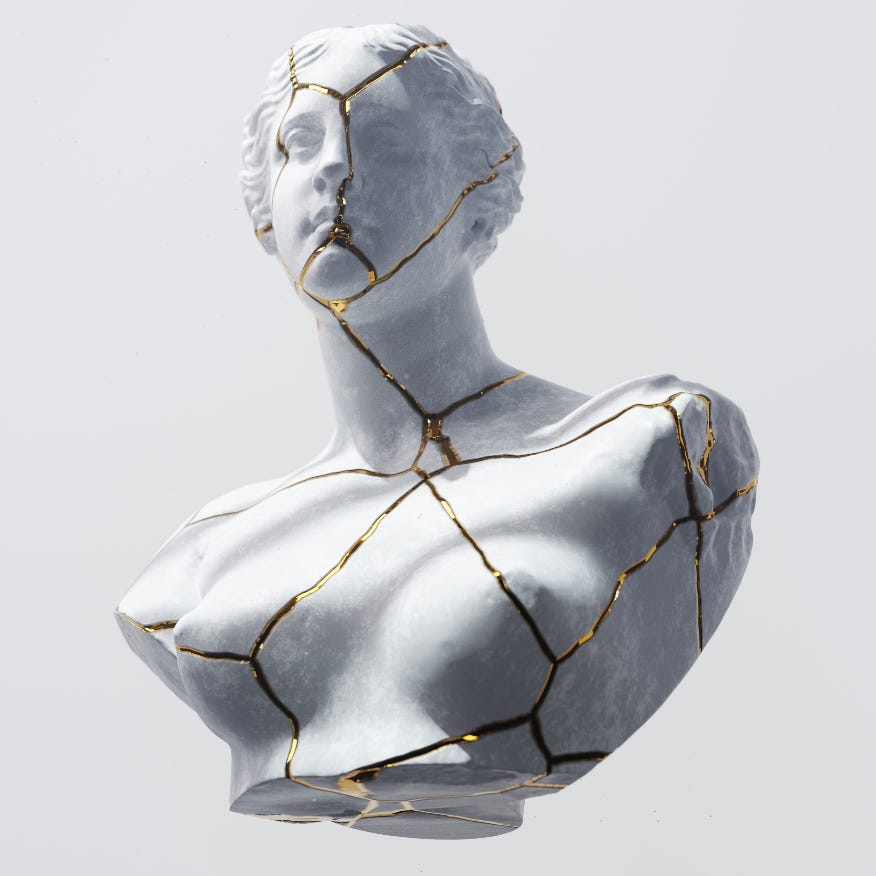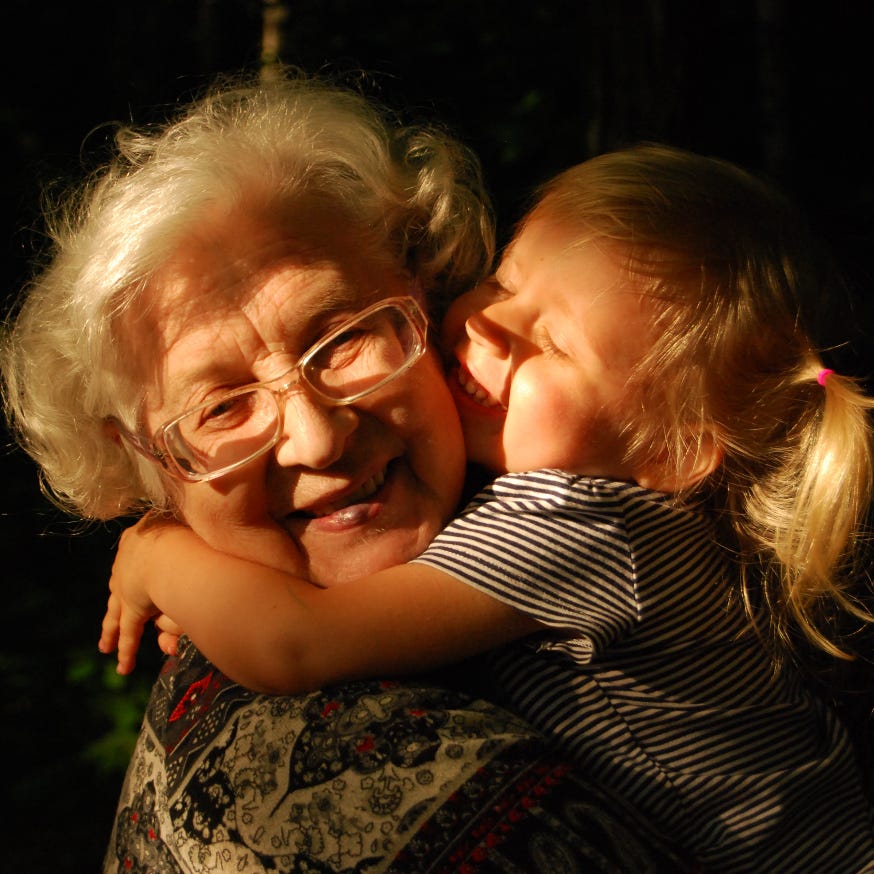The Value of Inner Work
A guest post from my dear friend Ben
This is a guest post by my friend Ben, whom I met during my time at Zen monastery in Vermont. Ben and his sister Maxi founded Samana, an organization offering an online curriculum for inner work to help people grow emotionally, psychologically, and spiritually. You can find out more about their organization by checking out their website www.samana.quest. Ben also writes a regular newsletter around inner work – you can sign up for it via his website.
A lot of us set out to manipulate the external world: Pursue a career, build something, pursue hobbies etc. Not that many of us set out to polish the tool we use to experience the external world: Ourselves.
One pivotal moment in my life was when I was going through a heart wrenching breakup. I sat on my bed on a weekday knowing that my ex was at work and wondering why I suffered: Together or broken up, she wouldn’t have been at home, as she was at work. Why did I suffer? It didn’t make sense to me: the external world would have been the same in either scenario, yet in one imagined world I was happy, in another one I suffered. My mind made me suffer!
We all know the feeling of having a good day vs. a bad day and what a difference a day makes! We often brush this off, being mildly aware of this effect yet banging on with our lives. Yet, taken this insight to its logical conclusion: Our inner world is our only access point to any experience and doing inner work allows us to transform our experience of the external world fundamentally and lastingly: Polish the lens through which you’re looking at the world and the world will shine brighter!
When I was a young man, I wanted to change the world I found it was difficult to change the world, so I tried to change my nation. When I found I couldn’t change the nation, I began to focus on my town. I couldn’t change the town and as an older man, I tried to change my family. Now, as an old man, I realize the only thing I can change is myself, and suddenly I realize that if long ago I had changed myself, I could have made an impact on my family. My family and I could have made an impact on our town. Their impact could have changed the nation and I could indeed have changed the world.
– Written by an unknown Monk around 1100 A.D.
This experience – and a few others along the way – made me realize that instead of travelling the world I wanted to travel inside. Instead of trying to attain happiness by manipulating the outside, I wanted to accept the inside to be happy. This led to me diving more and more into inner work, increasingly unpacking Ken Wilber’s integral theory. While embarking on this path, I also realized that our society is good at helping people develop conceptual and cognitive capacities, but there’s no accessible, structured, deep, and integral approach to transform our experience within.
For me, such an approach entails four facets:
Growing up: improving the relationships we have with others by connecting more deeply and authentically; e.g., via interpersonal meditation - circling
Cleaning up: becoming better at balancing our emotional needs; e.g., via learning Internal Family Systems or Art Therapy
Waking up: being better able to see beauty in the mundane; e.g., via meditation
Showing up: focusing more time on what matters to us - what makes us feel like we live our life well-lived; e.g., working on finding one's purpose.
Only working on some of these facets – such as only engaging in emotional healing, e.g., by doing therapy, while ignoring the other facets – is not transformative enough. It sure helps and I'd encourage everyone to do it, but when really wanting to make a difference in one’s experience of the world, a holistic approach is needed.
👶 Are you grown up yet?

Growing up allows us to have increasingly more meaningful connections with others and ourselves. It's our Self relating to others more skillfully.
The other facets are being more comfortable in our Self (cleaning up), letting go of our Self (waking up), and having our Self do something meaningful (showing up).
Growing up: relate to ourselves and others harmoniously
Growing up has a couple of elements to it, some of which are in my opinion well taken care of elsewhere, such as cognitive development at schools and universities:
cognitive development: this is what most of us learn in school and what most knowledge worker jobs entail: develop a more complex mental model of the world to better factor in other actors;
ethical development: taking ethics into account conceptually helps in making kind decisions, some business schools teach this nowadays which includes, amongst others, philosophical questions such as moral dilemmas;
relating to others: this is our ability to open up to others, be with others, and form meaningful and authentic relationships;
Although all three are relevant for growing up, my focus for inner work is on “relating to others” as it’s least covered within our existing educational systems.
Growing up via interpersonal meditation - circling
One of the most powerful tools to practice relating to others is interpersonal meditation (circling). During a circling session at least two people stay present with what's happening inside of each of them. At the same time, they relate to the other person and their notion of the other person verbally.
This can include factual statements such as, "I notice you're blinking", to making assumptions about what's happening inside the other person and checking in with them, such as, "I imagine you're sad - is that correct?". This interplay allows one to see what arises in social interaction, to test and check beliefs one holds about the world, oneself, or someone else, and to practice one's awareness.
It also allows one to quickly form social connections and cut to the chase: instead of tiptoeing around the other person, sniffing them out ("what's your job?"), one immediately reveals the underlying emotional forces at play. The skills learnt while circling, are also insanely powerful tools in any other social setting - from work to leisure.
Circling skills are particularly unburdening when one struggles with social anxiety or feels uncomfortable in social settings.
We feed on others, and they feed on us. Sometimes our relationships are mutually nourishing, sometimes not, but either way it's hard to imagine any lasting relationship where some kind of physical or mental nourishment wasn't being consumed. At the same time, feeding is the activity in which we experience the most intimate sense of ourselves. We define ourselves through the pleasures, people, ideas, and activities we keep returning to for nourishment.
✨What people think about you is not important. What you think about yourself means everything.
The other facet is cleaning up. It refers to integrating the emotional wounds that all of us carry. This can include negative experiences during childhood, more recent ones, or anything that's nagging you daily. It also entails finding ways to more skillfully deal with emotionally taxing situations, such as, a breakup, stress at work, financial worries, etc. In short, cleaning up refers to being comfortable in our Self. Being okay with "who we are" and accepting ourselves.
Our experience of the world is inherently linked to our experience of ourselves (think back of having a good day vs. a bad day and how much that shapes how you look at the world) and it's thus pretty unfortunate that our society, schooling, and upbringing don't put a lot of focus on our emotions and how we relate to them.
There's research indicating that the earliest years are the most important years across a host of indicators of quality of life, ranging from attained income at adulthood, to levels of happiness, relationship stability and support networks. The earlier, the more important! This isn't because you start learning math when you're a toddler, but because you learn emotional patterns that define your behavior for the rest of your life. Getting in touch with these patterns and relating to them more skillfully is thus one of the most important things one can do!
Two building blocks of my own cleaning up are Internal Family Systems (IFS) and Art Therapeutic techniques.
Internal Family Systems
Internal Family Systems (IFS) is an integrative approach to individual psychotherapy developed in the 1980s. In it, the mind is seen as made up of different parts that often pursue conflicting agendas. IFS brings these parts and their agendas into harmony.
IFS works from a place called the Self: a compassionate, curious, and open presence that's embracing whatever is happening. Conflict arises when individual parts take over. That can be, for example, a fear of abandonment from one's childhood or anger at the world for not being the way one wants it to be. IFS brings these parts and the Self into dialogue, embracing them and looking at their agenda. It's a wonderfully simple, yet powerful tool for reconciliation and emotional growth. One of its strengths is also that it can be done by oneself with a bit of practice.
Art Therapeutic Methods
Art therapeutic methods are great tools to release stress and to gain an insight into our emotional and mental system. They also lay bare resources one has to deal with taxing situations. This reflection also helps with one's communication, emotional affect, and the relationship with oneself and others.
One of my first art therapeutic sessions was me having a bad day around the aforementioned breakup and Maxi, my sister, and a practicing art therapist with over 10 years of experience, had me draw my emotions and then work with that painting subsequently. Art therapy is a wonderful way to shine light onto that subconscious sea of experience, bring it forth and transform it skillfully.
Let’s face it: we all have emotional baggage from our past. Let’s also face it: some experiences leave deeper traces than others and we all rather handle daily stressors skillfully instead of blowing up at our partner over dinner. To be okay in the here and now, one needs to do some cleaning up. Cleaning up helps you to feel better about yourself and to be more comfortable in your own skin.
What people think about you is not important. What you think about yourself means everything. - Buddha
Both, “growing up” to have our Self relate to others skillfully and “cleaning up”, to be more comfortable in our Self, are wonderful investments in our experience of the world. They are both powerful tools helping to polish the lens through which we experience the world and can thus set us on a path to fundamentally transform the experience of the world and consequently transform the world itself.
If you’d like to stay in touch with my writing, my work, or join the Samana program – an online curriculum for emotional, psychological, and spiritual growth with 4 to 6 participants – then head over to our website www.samana.quest to find out more and sign up for our newsletter!
I hope you enjoyed this change on pace on Becoming Conscious, I’d highly recommend going over to check out Ben’s project. During my time in Vermont at the Monastic Academy Ben and I trained rigorously day in and day out. It was grueling inner work, but so meaningful and transformative nonetheless. Both of our works have been deeply shaped by our meditation and contemplative training and I’m excited to be able to continually share the wisdom that I pick up along the way.
With love ❤️










